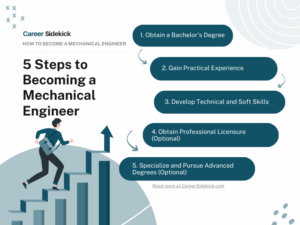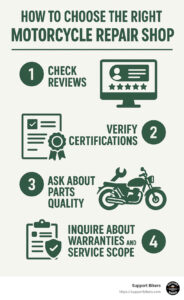Have you ever wondered what sets apart a truly professional auto mechanic from the rest? Car trouble can often feel overwhelming, but knowing what to expect from a skilled professional can make all the difference. Let’s dive into the key qualities that elevate an auto mechanic to professional status.
A professional auto mechanic boasts a robust blend of technical skills and up-to-date industry knowledge. With a history rooted in rigorous training and certifications, they possess the expertise to diagnose and repair a wide range of vehicle issues efficiently. According to recent statistics, mechanics who undergo continuous education have a significantly higher rate of successful repairs, assuring you that your vehicle is in capable hands.

What to Expect from a Professional Auto Mechanic
A professional auto mechanic is not just someone who fixes cars; they provide peace of mind. These experts possess in-depth technical knowledge and hands-on experience. They can diagnose problems accurately without wasting your time. Knowing your vehicle is in capable hands can reduce the stress of car troubles significantly. But what sets a professional apart?
The range of services offered by a professional mechanic is extensive. They handle routine maintenance like oil changes and tire rotations, but they also tackle complex engine repairs. They can perform diagnostic tests to pinpoint issues. A reliable mechanic will also offer preventative maintenance advice. This can help you avoid costly future repairs.
Communication is key when dealing with auto repairs. A professional mechanic explains issues clearly and offers detailed estimates. Transparency is their hallmark, discussing repair options and costs openly. They update you regularly on the progress of repairs. This helps build trust and ensures satisfaction.
Look for certifications and ongoing training in a professional auto mechanic. Many hold credentials from reputable organizations like ASE (Automotive Service Excellence). Continuous learning keeps them updated on the latest automotive technologies. This means they can service modern vehicles as efficiently as older models. Trustworthy mechanics invest in their education to provide the best service possible.
Essential Skills and Expertise
A professional auto mechanic needs a diverse set of skills to excel. They must understand the intricacies of various vehicle systems. This includes engines, transmissions, and braking systems. Knowing how these parts work together is crucial. It’s not just about fixing cars; it’s about mastering their inner workings.
Diagnostic skills are a key component of an expert mechanic’s toolkit. Using advanced diagnostic tools, they can identify problems accurately. This skill saves time and prevents unnecessary repairs. Mechanics need to be adept at using these tools effectively. Precise diagnostics lead to efficient and effective solutions.
Mechanics also need strong problem-solving abilities. They often face complex and unique car issues. Thinking critically helps them devise the best repair strategies. Adaptability in problem-solving is essential. This ensures they can handle unexpected challenges on the job.
Communication skills are just as important as technical expertise. A professional mechanic must explain vehicle issues and solutions clearly to customers. This includes breaking down complex automotive jargon. Effective communication builds trust and ensures customers understand the work being done on their cars. It ultimately leads to better customer satisfaction.
Range of Services Offered
A professional mechanic provides a wide range of services to meet different needs. Routine maintenance services keep your car running efficiently. These include oil changes, tire rotations, and brake inspections. Regular check-ups can prevent bigger issues down the road. Staying on top of maintenance ensures your vehicle’s longevity.
Beyond routine tasks, mechanics handle more complex repairs too. They can fix issues with your vehicle’s engine, transmission, and electrical systems. Advanced diagnostic tools help them pinpoint problems accurately. This precision ensures effective repairs. You can count on them for both minor fixes and major overhauls.
Professional mechanics also offer specialty services. This might include suspension work, exhaust system repairs, and air conditioning services. They are equipped to manage a variety of specific needs. Skilled mechanics will provide the right solutions for any automotive problem. Their extensive knowledge ensures comprehensive care for your vehicle.
Emergency services are another crucial offering. Breakdowns and unexpected issues can happen anytime. Many professional auto shops provide 24/7 emergency assistance. This quick response helps you get back on the road faster. Knowing you can rely on these services brings peace of mind during emergencies.
Communication and Transparency
Effective communication is essential for a professional auto mechanic. They must explain complex issues in simple terms. Clear communication helps customers understand the repairs needed. Customers feel more confident when they know what’s happening with their vehicle. This transparency builds trust.
Transparency also means providing detailed estimates. A mechanic should give an accurate cost before starting any repair. This includes explaining all the charges involved. Customers should not encounter hidden fees or unexpected costs. Honest estimates help maintain a positive relationship.
Regular updates during the repair process are crucial. A good mechanic keeps you informed about the progress of the work. This includes any changes in the estimated completion time. Consistent communication avoids misunderstandings. It ensures that customers are always in the loop.
Professional mechanics should also discuss repair options. They might suggest different solutions for a single problem. Each option should come with a clear explanation of benefits and costs. This allows customers to make informed decisions. Transparency in options shows respect for the customer’s budget and needs.
Customer feedback is another important aspect. A reputable mechanic encourages feedback to improve their services. They take comments and criticism seriously. This helps them refine their communication skills. Good mechanics see feedback as a tool for growth and improvement.
Open and transparent communication extends beyond face-to-face interactions. Many professional auto shops use digital platforms to keep customers updated. This might include emails or text alerts. Convenient digital communication methods enhance customer experience. It makes staying informed easier and more accessible.
Professional Certifications and Training
Professional certifications are a hallmark of a skilled auto mechanic. These certifications prove their expertise and commitment to the field. One common certification is from ASE (Automotive Service Excellence). ASE credentials cover various aspects of automotive repair. Holding such certification assures customers of high-quality service.
Continuing education is essential for mechanics. Automotive technology is always evolving. New car models and advanced systems come out regularly. Mechanics need to stay up-to-date to handle these changes. Ongoing training ensures they are familiar with the latest techniques and tools.
Many auto repair shops require their mechanics to get certified. This standardizes the quality of service across the board. It also means the shop values professional growth. Customers can feel confident in the capabilities of the staff. Certification is a mark of reliability and knowledge.
Some mechanics specialize in certain areas. They may have certifications in specific fields like hybrid vehicles or diesel engines. Specialization allows them to offer targeted services. For customers, this means finding an expert for their exact needs. Specialized certification adds another layer of trust and competence.
Certification processes often include rigorous testing. Mechanics must pass both written and hands-on exams. The testing covers various vehicle systems and repair scenarios. This ensures that only skilled professionals earn certification. The testing process validates their practical and theoretical knowledge.
Overall, certifications and ongoing training are critical in the automotive industry. They signify a mechanic’s dedication to excellence. Customers benefit from up-to-date knowledge and cutting-edge skills. Investing in education and certification is a win-win for mechanics and their clients. It makes car repairs and maintenance more reliable and efficient.
Tools and Technology Used
Modern auto mechanics rely on advanced tools and technology to diagnose and repair vehicles. These tools range from simple hand tools to complex diagnostic machines. Diagnostic scanners are essential for identifying issues in a vehicle’s electronic systems. They connect to the car’s onboard computer to read error codes. This allows mechanics to pinpoint problems quickly and accurately.
Besides diagnostic scanners, mechanics use a variety of handheld tools. Wrenches, pliers, and screwdrivers are staples in any mechanic’s toolbox. These tools help in dismantling and assembling various car parts. Mechanics also use specialized tools for tasks like brake repairs and tire changes. Each tool is designed for specific functions, making repairs efficient and effective.
Advanced technology also extends to software used in auto repair shops. Many use software to manage customer information, track repairs, and inventory parts. This software helps in streamlining operations and ensuring that everything runs smoothly. It can also schedule regular maintenance reminders for customers. Technology enhances both the repair process and customer service.
Hoists and lifts are crucial for accessing undercarriage components. These tools elevate vehicles for easy inspection and repair of parts like exhaust systems and suspension. This equipment is essential for performing detailed checks and ensuring vehicle safety. Workbenches equipped with various tools allow mechanics to work more efficiently.
Some mechanics also use digital alignment equipment. This technology ensures that a vehicle’s wheels are aligned correctly. Proper wheel alignment is crucial for safe driving and prolongs tire life. The precision offered by digital tools makes this task more accurate than manual methods. Combining technology with traditional skills enhances overall repair quality.
Access to the latest tools and technology is vital in the automotive industry. Mechanics must stay updated with new advancements to provide the best service. Regular training on new tools is often necessary. Investing in cutting-edge equipment ensures mechanics can tackle a wide range of issues effectively. It ultimately leads to better outcomes for customers and their vehicles.
Customer Service and Support
Exceptional customer service is a cornerstone of any professional auto repair shop. From the moment you walk in, the staff should be welcoming and helpful. They listen carefully to your concerns about your vehicle. This initial interaction sets the tone for the entire experience. A friendly approach makes customers feel valued.
Clear communication is crucial in providing excellent support. Mechanics should explain what needs fixing and why. Detailed invoices break down the costs involved, offering transparency. Customers appreciate knowing exactly what they are paying for. This openness builds trust and ensures satisfaction.
Many shops offer amenities to make waiting more pleasant. These might include comfortable seating areas, free Wi-Fi, and refreshments. Some provide shuttle services or loaner cars if repairs take longer than expected. Convenience features show that a business cares about its customers’ time and comfort. Enhanced customer service elevates the overall experience.
Follow-up services are another essential aspect of customer support. A good mechanic will check in after major repairs to ensure everything is running smoothly. This might include a quick phone call or an email reminder for a future maintenance appointment. Proactive follow-ups demonstrate commitment to long-term vehicle care.
Reputable mechanics also offer warranties on their work. These guarantees cover parts and labor for a specified period. Knowing that repairs are backed by a warranty provides peace of mind to customers. It assures them of quality workmanship and reliability.
Feedback mechanisms help improve customer service continually. Many garages solicit reviews or have suggestion boxes available on site or online platforms for reviews such as Yelp or Google Reviews can be used too.. Listening to customers’ experiences helps identify areas that need improvement . Positive feedback reinforces good practices Performance.
Regular Maintenance and Troubleshooting
Regular maintenance is key to keeping your vehicle in top condition. Professional mechanics offer a variety of routine services. These include oil changes, tire rotations, and brake inspections. Performing these tasks regularly can prevent major issues. It also extends the life of your vehicle.
Another essential service is fluid checks. Ensuring that fluids like coolant, transmission fluid, and brake fluid are at proper levels is crucial. Mechanics check and top off these fluids to keep your car running smoothly. Regular fluid checks help avoid overheating and other complications. It’s a simple step that can prevent costly repairs.
Troubleshooting is another important aspect of a mechanic’s job. When a problem arises, a skilled mechanic can diagnose the issue quickly. They use advanced tools to pinpoint the root cause. Accurate diagnosis means faster, more effective repairs. This minimizes downtime and gets you back on the road sooner.
Mechanics also perform comprehensive vehicle inspections. These inspections include checking belts, hoses, and electrical systems. Identifying potential problems early can save you from unexpected breakdowns. Regular inspections ensure your car is safe and reliable. It gives you confidence in your vehicle’s performance.
Preventative maintenance is a smart investment. By addressing minor issues before they become major problems, you save money in the long run. Professional mechanics offer tailored maintenance plans based on your vehicle’s needs. These plans include scheduled services and timely reminders. Keeping up with recommended maintenance helps maintain your vehicle’s efficiency and safety.
Understanding common car issues can help in early troubleshooting. Problems like strange noises, poor fuel efficiency, or warning lights on the dashboard are signals. Consulting a mechanic at the first sign of trouble can prevent larger issues. Early detection and resolution are crucial for vehicle health. A professional mechanic will guide you through the troubleshooting process effectively.
The Importance of Choosing a Reputable Mechanic
Selecting a reputable mechanic is crucial for maintaining your vehicle’s health. A trustworthy mechanic ensures that repairs are done correctly and efficiently. They use high-quality parts and tools for all services. This attention to detail helps prolong your car’s lifespan. It also ensures your safety on the road.
Reputable mechanics provide honest and transparent pricing. They offer detailed estimates before starting any work. This includes outlining all costs involved, so there are no surprises later. Transparent pricing builds trust between the mechanic and the customer. You know exactly what you’re paying for and why.
Another benefit of choosing a reputable mechanic is their professional certifications. Certified mechanics have undergone rigorous training and testing. These certifications ensure they are knowledgeable about various vehicle systems. You can trust their expertise in diagnosing and repairing your car. It adds an extra layer of assurance for the customer.
Customer service is a hallmark of reputable mechanics. They communicate clearly about what needs to be done and keep you updated throughout the process. Good customer service includes answering any questions you might have. Being treated with respect and courtesy makes a big difference. It enhances the overall experience of getting your car serviced.
Long-term relationships with a single mechanic can also be beneficial. They become familiar with your vehicle’s history and specific needs. This ensures more personalized and effective service. Knowing your mechanic helps in building a rapport. It makes future visits more comfortable and efficient.
Checking reviews and seeking recommendations can help you find a reputable mechanic. Word-of-mouth referrals often point to reliable professionals. Online reviews provide insight into other customers’ experiences. A mechanic with positive feedback is likely to provide excellent service. Researching options helps you make an informed decision.

Conclusion
Choosing the right mechanic significantly impacts your vehicle’s performance and safety. A reputable professional offers reliable services, transparent pricing, and excellent customer care. This ensures your car remains in top condition for years. Trust and expertise make all the difference.
Regular maintenance and effective troubleshooting prevent major issues. Investing in skilled mechanics who keep up with the latest technology is essential. Their expertise ensures your vehicle receives the best possible care. Ultimately, a reliable mechanic contributes to a smoother and safer driving experience.





Leave a Reply